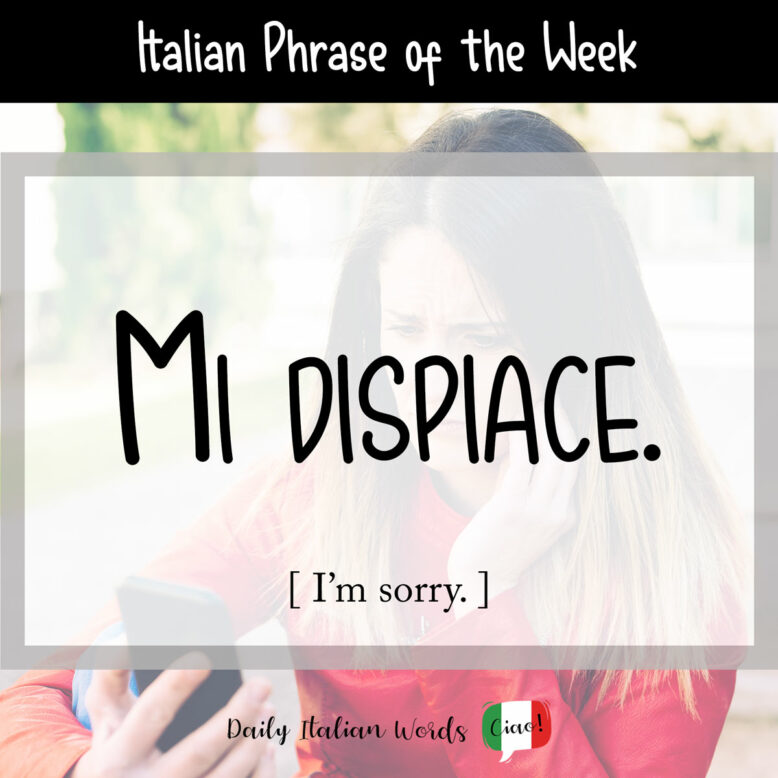The phrase Mi dispiace in Italian translates as I’m sorry in English. It comes from the verb dispiacere which means to be sorry or to regret.

Mi dispiace is mainly used when you wish to express regret or sorrow about an unfortunate situation.
Imagine, for example, that your friend tells you that she didn’t pass her exam despite studying very hard. In order to express sympathy, you could respond with:
Mi dispiace che tu non sia riuscita a superare l’esame.
I’m sorry you didn’t pass the exam.
Mi dispiace can also be used when you wish to make an apology. For example, if you invite your friends over for coffee and realise at the last minute that you’ve run out, you could apologise for getting their hopes up by saying:
Mi dispiace ma sono rimasto senza caffè.
I’m sorry but the coffee has run out.

To say that you feel sorry for someone, you can use the expression mi dispiace per… (lit: I’m sorry for…).
Mi dispiace per la squadra. Meritava di vincere la partita.
I feel sorry for the team. They deserved to win the game.
Unlike the expression I’m sorry in English, mi dispiace generally isn’t used to excuse yourself for a mistake or bad behaviour. Instead, you are more likely to hear scusa / scusami / ti chiedo scusa (informal) or mi scusi / le chiedo scusa (formal), which are all alternative ways of saying I’m sorry. (The reflexive verb scusarsi means to apologise, chiedere scusa means to ask forgiveness.)
Scusa, non l’ho fatto apposta!
I’m sorry, I didn’t do it on purpose!

An alternative to mi dispiace is mi spiace. (The verb spiacere is a synonym for dispiacere.) You’ll also often hear Italians use both mi (di)spiace and scusa in the same sentence. For example, if you spill your friend’s coffee on the floor, you could say:
Oh caspita, scusami, mi spiace tanto! Te ne faccio subito un altro!
Oh dear, I’m so sorry. I’ll make you another one right now.
Mi spiace and scusa are also used to say sorry to a person you can’t or don’t want to help:
- Scusa, vado di fretta = Sorry, I’m in a hurry.
- Non ho spiccioli, mi spiace = I don’t have any change, sorry.
Mi dispiace, preceded by the negation non, is used to express a moderately positive judgement about something or someone, much like the English expression I don’t mind.
Questa torta non mi dispiace.
I don’t mind this cake.
Even more emphatic are the phrases non mi dispiace per niente or non mi dispiace affatto which equate to I don’t mind at all in English.
Heather Broster is a graduate with honours in linguistics from the University of Western Ontario. She is an aspiring polyglot, proficient in English and Italian, as well as Japanese, Welsh, and French to varying degrees of fluency. Originally from Toronto, Heather has resided in various countries, notably Italy for a period of six years. Her primary focus lies in the fields of language acquisition, education, and bilingual instruction.


